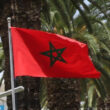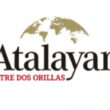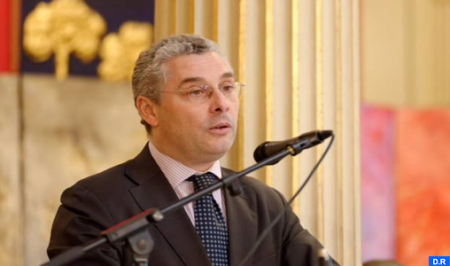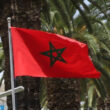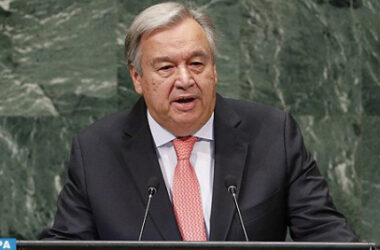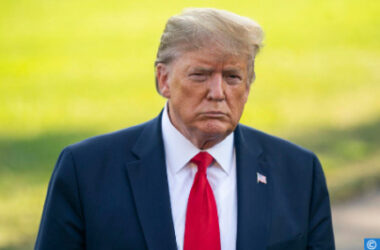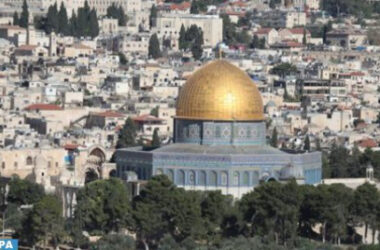The recent arrest of the alleged perpetrators of the intentional homicide with mutilation of the body of a policeman in Casablanca, who are affiliated to Daesh, confirms the great efficiency of the Moroccan security and police services, the French expert in geopolitics and geostrategy told MAP.
According to Dupuy, the Moroccan approach, both holistic and multidimensional, is actually based on five essential pillars (religious, security and legal, socio-economic, strengthening human rights and the rule of law, international cooperation).
The religious pillar is based, in particular, on the legitimacy and centrality of the Commandery of the Faithful, which determines the proper management of religious affairs, as well as the protection of the free exercise of worship, he explained.
Focusing on the security and legal pillar, the strategy put in place by Morocco for the prevention and fight against terrorism and violent extremism that threatens not only Morocco, but the entire Maghreb and Sahel region, is based on the prevention of malicious acts, vigilance and monitoring, Dupuy noted that this proactive approach has helped to anticipate possible terrorist attacks and to abort several attacks against the country’s security and stability.
This has resulted in the profound overhaul of the national security architecture, which has been operated to strengthen the Kingdom security governance, he said, noting that to this end, Morocco has established the Central Bureau of Judicial Investigations (BCIJ) in March 2015, which is in charge of the fight against terrorism.
The effectiveness of the fight against terrorism in Morocco relies on this tool (BCIJ) which is “unique”, he said, noting that it could serve as a model of cooperation in this case. “I think it is an element on which we could rely much more upstream in Europe,” he said.
As for the socio-economic pillar, the expert recalled that the prevention and fight against violent extremism in Morocco also requires the promotion of a human development based on solidarity, so as to put in place strong social nets that strengthen the resilience of vulnerable categories to radicalization and prevent the creation of breeding grounds for terrorism and violent extremism.
Regarding the pillar of strengthening human rights and the rule of law, the president of the Institute for Prospective and Security in Europe noted that with some 40 articles devoted to human rights, the 2011 Constitution constitutes a “true national Human Rights Charter.”
“The supreme standard of the Kingdom of Morocco has brought the country into a constitutionalism that has allowed the national ownership of the principles of protection and promotion of human rights, through the constitutionalization of many institutions and bodies for the protection of rights and fundamental freedoms, good governance, human and sustainable development and participatory democracy,” he noted.
The expert also said that the Kingdom, fully aware that no country can alone overcome violent extremism, favors international cooperation, through its various forms, including triangular cooperation, north-south cooperation and south-south cooperation.
Morocco participates – at the regional and international levels – in the dissemination of good practices and lessons learned developed at the national, regional and international levels in the fight against violent extremism, he stressed.


